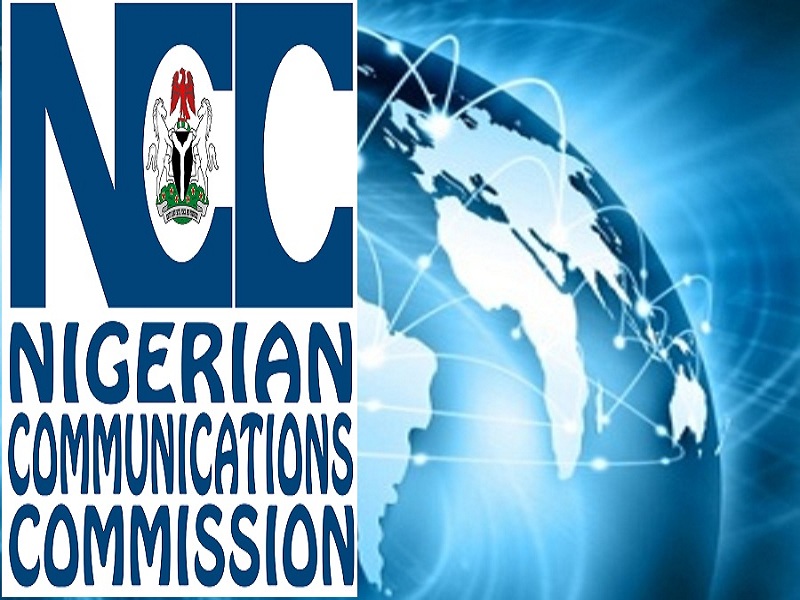As Nigeria’s regulator for the telecommunications industry, the Nigerian Communications Commission oversees the activities of all of the nation’s service providers including providers of Internet services.
A key objective of the Commission is to promote the provision of modern, efficient, reliable, affordable and easily accessible communications services and the widest range thereof throughout Nigeria, including the Internet, with policies and industry codes developed to address issues peculiar to the Nigeria and International best practices reviewed and adopted where they do not conflict with existing national laws.
The Interconnection of several networks linking thousands of devices – the Internet – and the resultant dependencies on the facilities provided, has become an indispensable platform for communication, commerce, development, etc.
The reach of this platform extends beyond the traditional borders of nations and as such impact on one “area” affects another, thus no nation can stand aloof or remain complacent with the developments or its use. The Governance of the Internet has, therefore, become a major global issue.
While no one body governs the Internet, there are several agencies responsible for various aspects of it and its governance.

Although there is currently no agreed universal definition of Internet Governance, the World Summit on Information Society organized by the United Nations, (WSIS) in 2006, came up with the following as a working definition:
“The development and application by governments, the private sector and civil society, in their respective roles, of shared principles, norms, rules, decision-making procedures, and programs that shape the evolution and use of the Internet.”
Pursuant to the objective of the NCC, the Commission designs programmes and initiatives, organizes events, carries out research on Internet Governance developments in other jurisdictions, promotes the establishment of a multistakeholder structure of policy development, participates in Internet Governance related fora within and outside the region, and partners with International agencies to drive growth in Internet access, growth and usage within Nigeria.
The following is a list of on-going (with status update), planned and proposed Internet-related projects and initiatives adopted by the NCC in line with best practices. They include:
Internet Code of Practice
The NCC believes the Internet can provide enormous benefits to the Nigerian public as a source of information, education, research, commerce, communication, and entertainment, and as a key driver for innovation and technological advancement.
However, the Internet also includes content that some users might find objectionable and would not want themselves, their children, or even society at large, exposed to.
According to the NCC, “While an Open Internet is key for successfully driving innovation, there are several factors to be considered in its promotion, such as privacy and data protection, child online protection, objectionable content, unsolicited communications, and traffic management practices that are considered necessary in order to maintain network efficiency.”
To this end, the Nigerian Communications Commission, in accordance with its authority to regulate the communications sector in Nigeria as expressed in the Nigerian Communications Act 2003, had published the Internet Code of Practice to define the rights and obligations of Internet Access Service Providers with regard to the issues therein.
The establishment and enforcement of the Code is envisioned as a co-regulatory effort between the Commission and industry stakeholders explaining the public consultation and incorporation of stakeholder feedback into the final document.
The specific objectives of the Code are to: Protect the right of Internet users to an Open Internet; Provide clear guidelines to Internet Access Service Providers on the use of traffic management practices, and Outline the obligations of Internet Access Service Providers in relation to the protection of consumers’ personal data.
Others include to: Outline the obligations of Internet Access Service Providers in the handling of offensive and potentially harmful content, and the protection of minors and vulnerable audiences online; and Ensure adequate safeguards are put in place by Internet Access Service Providers against unsolicited Internet communications.
The Nigerian Online Child Protection
With nations presently grappling with the impact of COVID-19, including the fact that young people are compelled to spend more time at home which implies, more screen time (offline and online), the impact of COVID-19 pandemic has brought to bear a shift in the norms, putting more activities, including education of children, online.
The NCC believes that online activities have acquired a new meaning and become the reality of Nigerian parents and children with screen time and screen activities the new normal.

“Parents are constantly searching for online learning platforms, TV stations are providing more child-based educational content and schools are teaching via Zoom, Google Classroom and YouTube. Cyberspace, the internet and online activities are here to stay. The future has arrived, welcome!!
“The fusion of children and the internet has not given birth to new concerns as is widely perceived, it has magnified the critical need for parents and caregivers to step up to the new norms of Online Life for Children, thus the need for Online Parenting.
“Concerns of safety and privacy have been with us from the beginning of time. What has changed, however, is the invisible and borderless nature of these concerns and the magnitude of the consequences when they occur,” the NCC contends.
The Nigerian Communications Commission (NCC) has, therefore, provided tips for parents and caregivers on how to keep children safe online, saying that the tips cover what to do before things go wrong, while children spend time online, and what to do if things go wrong.
The Commission in a document titled: ‘Keeping children safe online: Advice to parents and caregivers,’ the Nigerian Communications Commission (NCC), had taken into consideration the International Edition of Europol COVID-19 Global Online Safety Advice for Parents and Carers, and the ITU’s Keeping Children Safe Online during the COVID-19 Pandemic.
The document serves as a guide that will help Parents and Carers/Guardians during and beyond the COVID-19 pandemic.
Development of National Internet Registry database
The Commission documents information on all IP addresses allocated to Nigeria by AFRINIC. Such information is utilised for various regulatory activities relating to security on the Internet.
Internet Exchange Point of Nigeria (IXPN)
The Commission is now a member on the Board of IXPN and supports its mission and vision. The Vision of the IXPN is to provide a national core infrastructure that facilitates internet operations in Nigeria and to localise traffic as well as reduce local internet routing cost.
The Internet exchange point (IXP) is a physical infrastructure that allows several Internet Service Providers (ISPs) and network operators to exchange traffic between their networks, generally referred to as autonomous systems, by means of mutual peering agreements, which allow traffic to be exchanged at no cost.
Organizations that connect their networks to an IXP benefit from reduced reliance on expensive international transit for exchanging local traffic between themselves, and improved efficiency of their operations and communications.
Internet Governance Collaboration
NCC is in collaboration with the following Internet-related bodies in relation to Internet Governance: the Nigeria Internet Registration Association (NIRA); Nigerian Internet Governance Forum (NIGF); Internet Governance Forum (IGF); and the Internet Corporation for Assigned Names & Numbers (ICANN).
Internet Resource and Infrastructure
The NCC is in collaboration with the African Network Information Centre (AFRINIC), and Internet resource and Infrastructure information is updated on their website as follows: IPv4 addresses and allocation by country; IPv6 prefixes issued by country; ASN by country; and DNSSEC Statistics.
More information about NCC’s Internet Governance Initiatives can be found at https://www.ncc.gov.ng/

